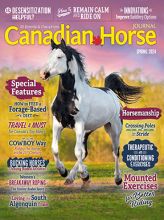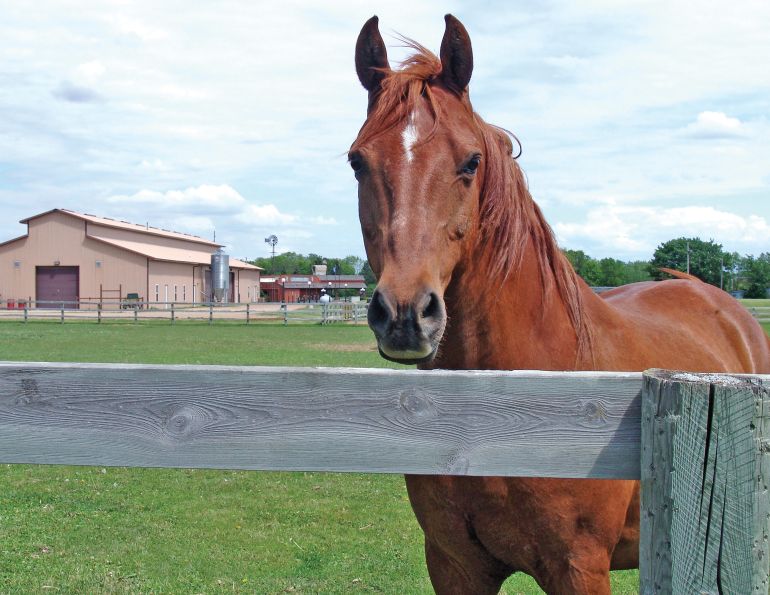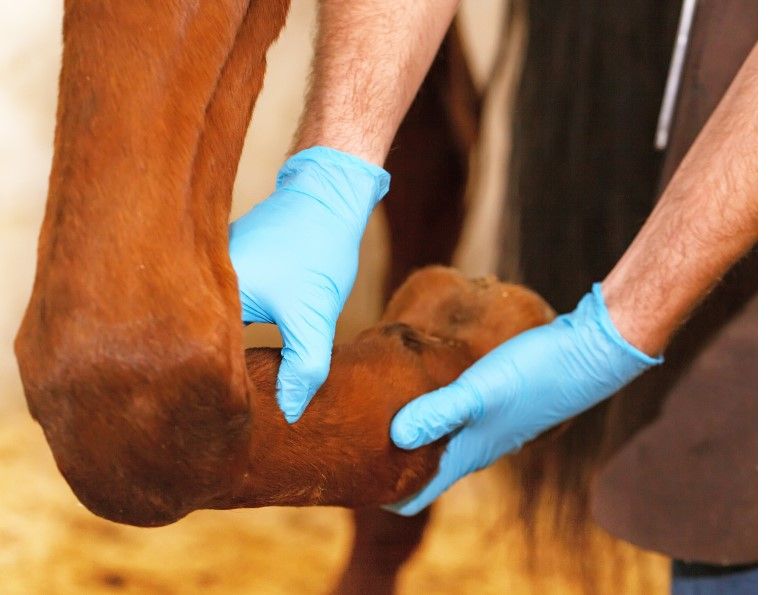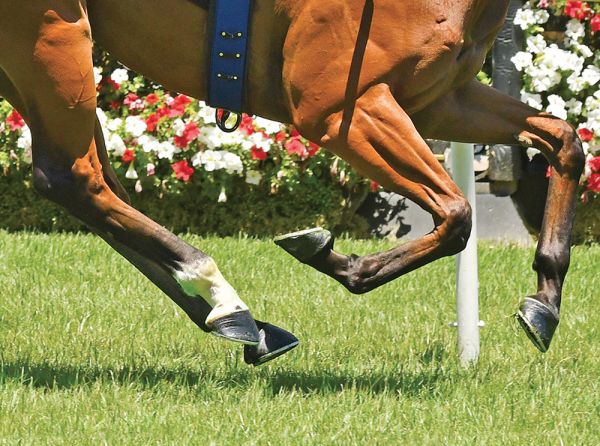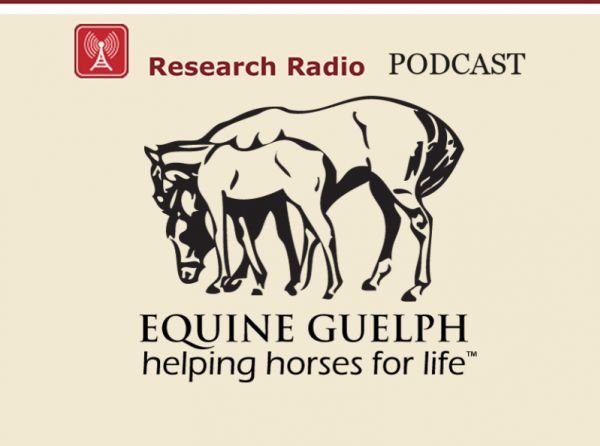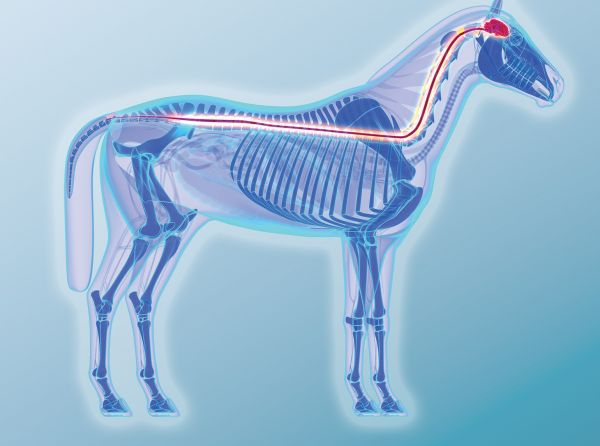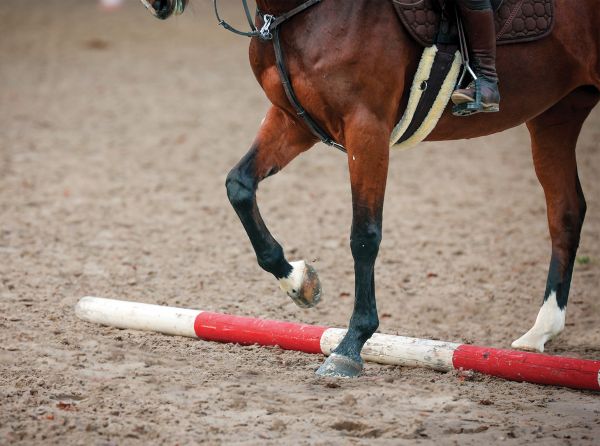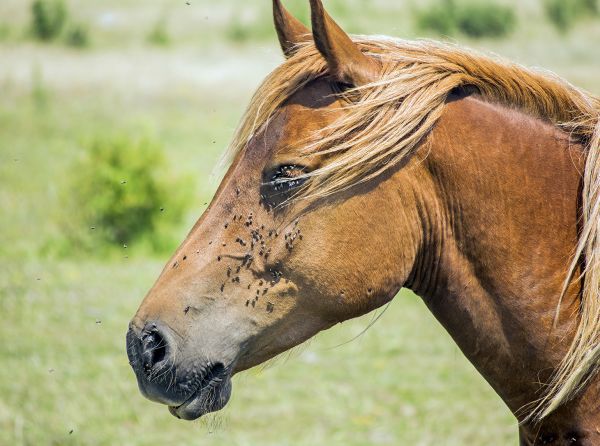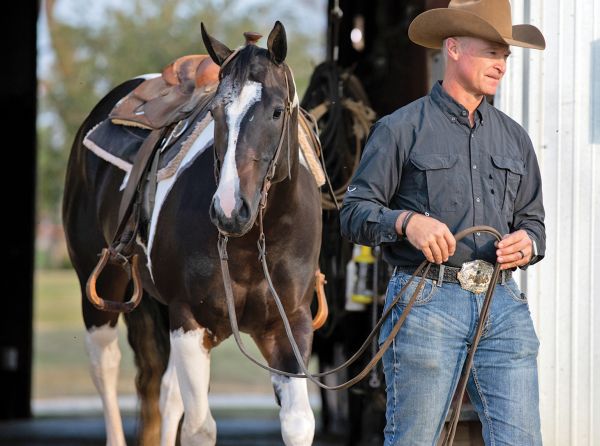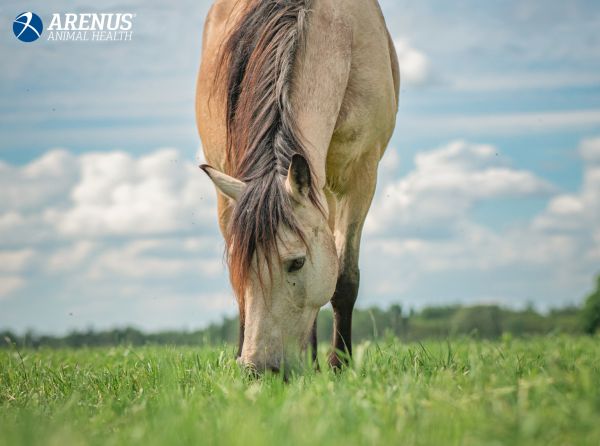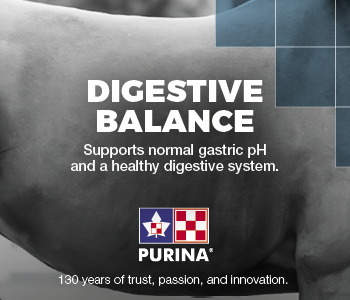By Hayley Kosolofski
Although many horses in Canada have high performance, breeding, and emotional value in the eyes of their owners, few of the animals are covered under an equine insurance policy.
Horse insurance can help owners with the cost of treating these horses.
“We are often dealing with horses that are injured or sick, and owners are facing the choice of a treatment that may be very expensive,” says Dr. Steve Manning, an equine field service clinician and an associate professor at the Western College of Veterinary Medicine (WCVM).
“There is a lot of stress associated with not just the injury or illness, but the financial implications of that [treatment]."
Horse insurance initially began as protection against horse theft. Today, it has evolved into a service that offers horse owners a variety of choices from basic mortality policies to loss-of-use packages for high-end athletes. With all these options, choosing a policy that is right for you and your horse can be challenging, says Manning.
Types of Horse Insurance
Mortality
“If people insure their horses, by and large they are purchasing mortality insurance,” says Manning. Two types of policies are typically offered: full mortality and theft, or limited mortality. Full mortality and theft is comparable to a term life insurance policy. It insures against financial losses from death for any reason, and proven theft. Limited mortality will cover the death of a horse due to specified perils such as fire, natural disasters, or vehicle accidents.

Photo: ©CanStockPhoto.com/Alessandro0770
Surgical
Surgical policies are purchased as an addition to mortality policies. “It insures you against any financial losses incurred as a result of any surgery that has to be performed by a licensed veterinarian to save an animal’s life, to better its health, or to treat an injury,” says Manning. Often, it will also cover medical costs associated with the surgery.
Major Medical
Major medical insurance, like surgical insurance, can be added to a mortality policy. It will provide coverage for your horse’s medical needs such as hospitalization and long-term medical therapy.
Loss of Use
Loss of use policies are the equine equivalent of disability insurance for people. “High end performance horses, whose financial worth is in the performance of the task they do, can be insured for that activity,” says Manning. If the horse suffers an injury or illness that ends his career, but not his life, the policy will pay a percentage of his declared value.

Photo: ©CanStockPhoto.com/Jarih
Stallion Infertility
Valuable breeding stallions can be insured against acquired infertility. Some conditions that Manning commonly sees include breeding injuries, tumours of the penis, and testicular degeneration. Before obtaining a stallion infertility policy, the horse breeder must prove that the stallion is fertile.
Transport
Most mortality insurance policies will cover ground transport to a certain extent. However, they will not cover international travel or air travel. “So if your horse is travelling internationally by air, or sometimes even by ground, you may need to look at purchasing short-term trip insurance to cover the horses on those journeys,” says Manning.

Photo: ©CanStockPhoto.com/Egonzitter
Liability Insurance
Anyone who owns a horse should probably, at the very least, carry liability insurance, recommends Manning.
Liability insurance will protect you if someone is injured or property is damaged by your horse. Liability insurance is often covered in a group policy offered to members through provincial equestrian federations such as Horse Council of British Columbia, Alberta Equestrian Federation, and Ontario Equestrian Federation. Specific insurance policies for coaches, stable owners, clubs, outfitters, and therapeutic services are available and are tailored to the needs of those activities.

Photo: ©CanStockPhoto.com/Michael Jung
The Insurance Exam
Before obtaining a policy, insurance providers often require a veterinary exam. “What we are asked to do is a general physical exam — so we take the horse’s temperature, pulse, and respiration, we listen to the heart, and we listen to the lungs. We make sure that the horse is free from evidence of infectious disease or any skin disease, that it’s generally healthy and in good body condition,” says Manning.
In addition, Manning says the exam often requires the veterinarian to look at the horse’s eyes and to perform a brief lameness exam. Insurance providers may also request information about the horse’s past medical and surgical history.
Choosing a Policy: Final Tips
- Understand your needs and reasons for obtaining an insurance policy for your horse. Think about your horse’s activity, risks, and current health status.
- Compare price, coverage, and exclusions between insurance providers.
- Choose a policy that fits your lifestyle. For example, many limited mortality policies allow you to add additional specific perils such as an attack by a dog or a wild animal.
- Know exactly what coverage is provided before you purchase a policy. Ask your insurance provider to explain any terms or conditions that are unclear.
- Understand your responsibility in the event that your horse becomes ill or injured. Be familiar with the guidelines for emergency situations and end-of-life decisions.
Note: This article is provided for information only. Neither Dr. Steve Manning nor the WCVM has any association with an insurance company or the marketing of insurance policies.
Hayley Kosolofski is a third-year veterinary student from Sherwood Park, Alberta, who is the undergraduate student representative for the WCVM’s Equine Health Research Fund.
This article was originally published in the Equine Consumers’ Guide 2015.
Main article photo: Equine insurance today offers horse owners a variety of options from basic mortality to policies covering loss-of-use for high performance athletes. Credit: ©CanStockPhoto.com/Mariait


